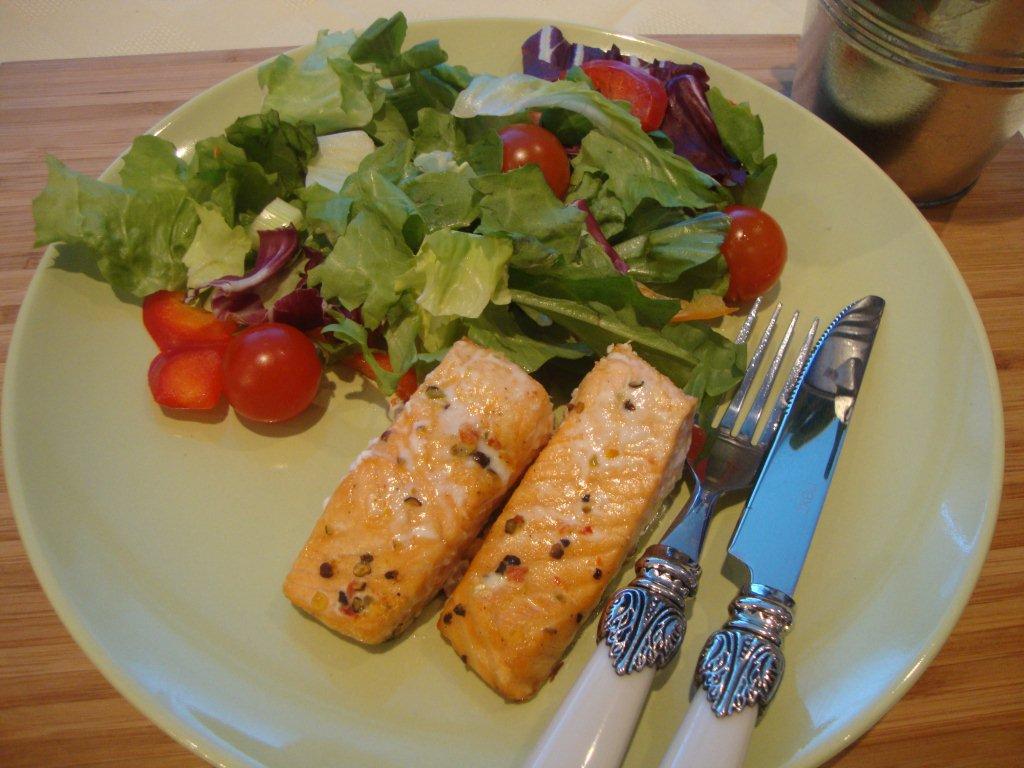Have you had your cholesterol checked recently? Now is the time. Cholesterol is the biggest single risk factor for heart disease, and cholesterol testing is a good way to highlight that risk.
This week in the United Kingdom has been designated National Cholesterol Week (13 – 19 September), and national charity HEART UK has organised activities and events to promote the importance of knowing your risk for cardiovascular disease.
“There is still a lot of work to be done in improving the nation's knowledge about cholesterol and also eradicating many misconceptions,” says Jules Payne, Chief Executive of HEART UK. “ Everyone should get their cholesterol checked, “even if you are fit, young and healthy and you don't think you are at risk,” adds Payne. “It can be a silent killer with few visible symptoms and often the first sign could be a fatal heart attack.”
 Oily fish, such as mackerel pictured here, are among the richest sources of healthy omega-3 oils. Nazma Lakhani
Oily fish, such as mackerel pictured here, are among the richest sources of healthy omega-3 oils. Nazma LakhaniOne way to lower your cholesterol is to replace foods that are high in saturated fat (such as fatty meats, full-fat dairy products or ghee) with foods that contain unsaturated fats (like oily fish, spreads made from olive or sunflower oils, and avocado). Saturated fat is one of the causes of high blood cholesterol levels. Having too much saturated fat can raise your bad cholesterol levels (LDL), increasing your risk of heart disease.
- Choose lean varieties of meat and cut down on the amount of mutton and lamb served in a portion. Remove the skin from chicken and turkey as it is rich in saturated fats.
- Choose fish twice a week and make sure that one portion is an oily fish, such as mackerel, salmon, trout, herring, tuna, sardines or pilchards. Oily fish are the richest sources of healthy omega-3 oils. Avoid frying fish – you can make delicious masala fish by smothering your favourite fish with spices and tomatoes and baking it in the oven.
- Minimise the use of oils and fats used in cooking. When cooking meat-based dishes, try cooking onions and spices in the meat juices rather than frying them first.
- Butter is rich in saturated fat; use a poly or mono-unsaturated spread instead. This simple swap can help to reduce your overall saturated fat intake.
- Avoid using ghee or creamed coconut in cooking. Did you know that there are ten grams of saturated fat in just one tablespoon of ghee? Vegetable ghee is often rich in trans-fat – another bad fat – so choose oils made from rapeseed (canola), olives, corn or sunflowers instead.
- Remember, fat is often hidden in foods, so you could be eating it without realising. Mithai, like burfi and penda, are often made with ingredients like ghee, butter, condensed milk and full cream milk powder.
- Choose lower fat dairy products such as skimmed (1%) or semi-skimmed (2%) milk, low-fat yoghurt and reduced fat cheeses.
 Have at least five fruits and vegetables every day, eat oily fish once or twice a week, use less salt, eat more whole grains and be more active. Nazma Lakhani
Have at least five fruits and vegetables every day, eat oily fish once or twice a week, use less salt, eat more whole grains and be more active. Nazma LakhaniHere are some additional tips that will help you to keep your cholesterol level in check and your heart healthy:
- Reduce sugar intake by choosing lower-sugar foods and drinks. Too much sugar can increase your blood triglycerides, a type of fat in your blood. People with high triglyceride levels are at greater risk of developing cardiovascular disease.
- Include whole grain foods in your diet such as granary bread, and chapattis made from wholemeal flour. Increase your soluble fibre with oats, lentils (dhals), beans and fruit. Try lentil soup or warming porridge for breakfast topped with dried fruit. Whole grains have been shown to be heart-protective.
- Eat at least five portions of fruit and vegetables every day.
- Try taking a plant sterol or stanol drink daily. Some companies make yoghurts and spreads with plant sterols or stanols. You need two grams per day (check the label). Studies show that this amount can reduce your blood cholesterol by up to 15 per cent, when eaten regularly as part of a balanced diet.
- To cut down on unhealthy fat and salt generally, eat fewer fried foods like samosas, and fewer processed foods, like burgers, pastries and pies.
Be wise with your fats. Have at least five fruits and vegetables every day, eat oily fish once or twice a week, use less salt, eat more whole grains and be more active. Most importantly, if you smoke – stop!







